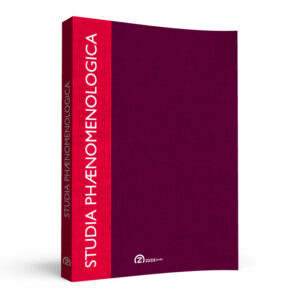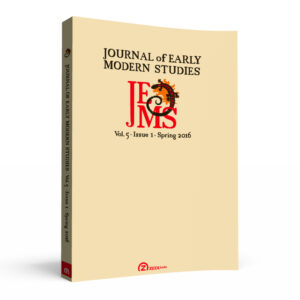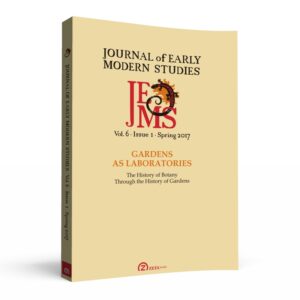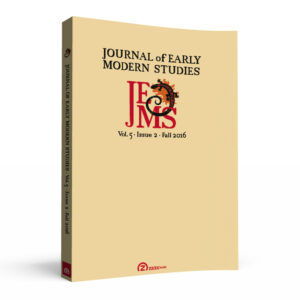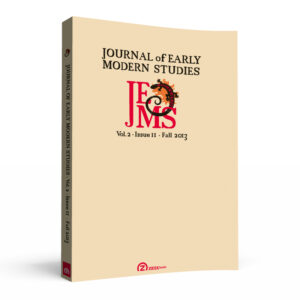STUDIES
Rolf Kühn: Das Konstitutionsproblem des eigenen Leibes: Eine radikalphänomenologische Analyse im Anschluss an Maine de Biran
Abstract: A phenomenological reading of Pierre Maine de Brian (1766-1824) offers a valuable understanding of one’s own body in relation to the ego’s apperceptive effort. As an organic mass, the body follows the double movement of this effort, manifested by an inner and an outer resistance. This movement allows the „constitution” of the world as correlative to the deployment of a force, identified with the apperception of the ego itself. This practical radicalization of the cogito can be viewed as the first outstanding achievement of phenomenology itself, even prior to its historical foundation by Husserl.
Jean-Claude Gens: L’esthétique Brentanienne Comme Science Normative
Abstract: According to Brentano, logic, ethics and aesthetics are practical normative sciences, and they correspond to the three classes of psychic phenomena. But if a judgment or a love may be correct or incorrect, it seems more difficult to speak of a correct representation as this class of phenomena ignores a polarity such as right / wrong or good / bad. Brentano speaks nevertheless from the aesthetical “value” of representations. Aesthetics could in this way be considered as part of a general theory of value; but compared to ethics the specificity of this science tends to vanish. Another way to consider the question is to remember that the distinction among the three classes of psychic phenomena is only formal. It means that one has to question more precisely the very nature of representation and especially its relation to feeling.
Pascal Chabot: L’idéalité enchaînée: Husserl et la question des « mondes possibles »
Abstract: The aim of this paper is to show how the concept of “possible world”, that Husserl inherits from his study of logics, is capital for the understanding of his phenomenology. This concept is a fine tool that provides him a possibility to articulate the question of the physical and the cultural dimensions of some objects. A cultural object as a book or a painting has in fact two dimensions: a “material” one and a “spiritual” one. The author examines which are the relationships between those two dimensions. This question leads him to an interrogation on the genesis of the ideality of the cultural world. Is there not a contradiction between the ideality of the meaning and his historical genesis? In order to provide an answer to this question, the author suggests that one may use the notion of a “linked ideality”, i.e. ideal but linked up to the earth.
Nader El-Bizri: On ΚΑΙ ΧΩΡΑ: Situating Heidegger Between the Sophist and the Timaeus
Abstract: In attempting to address the heideggerian Seinsfrage, by way of situating it between the platonic conception of ̉όν in the Sophist and of χώρα in the Timaeus, this paper investigates the ontological possibilities that are opened up in terms of rethinking space. Asserting the intrinsic connection between the question of being and that of space, we argue that the maturation of ontology as phenomenology would not unfold in its furthermost potential unless the being of space gets clarified. This state of affairs confronts us with the exacting ontological task to found a theory of space that contributes to an explication of the question of being beyond its associated temporocentric determinations. Consequently, our line of inquiry endeavors herein to constitute a prologmenon to the elucidation of the question of the being of space as “ontokhorology.”
Servanne Jollivet: Heidegger, lecteur d’Aristote: Du mouvement à la mobilité dans l’herméneutique facticielle (1919-1924)
Abstract: Bringing back reflection to the mobility of the existence, a systematic re-appropriation of the Aristotelian concept of movement underlines the Heideggerian re-foundation of philosophy. Hence deconstructed and elaborated through “mobility”, the notion of movement constitutes the foundation stone that allows to play Aristotle against Aristotle and to contribute, via his hermeneutical reinvestment, to the “destruction” of the substantialist tradition.
Bogdan Mincă: Das Modell der Herstellung: Über den Bezug Technē — Eidos — Logos in M. Heideggers interpretationen zu Aristoteles
Abstract: In his interpretations of Aristotle (1921-27), Heidegger argues that the ontological model of poiēsis (Herstellung, production, understood as bringing something into being by way of craftsmanship or art) played an essential part in the development of all major concepts of Greek metaphysics. The being of man and nature were understood in the light of the being of the produced things (erga), which Heidegger calls Vorhandensein (ousia). We will show here how Heidegger interprets three central words of Aristotle’s philosophy: technē (the knowledge which guides all steps of production), eidos (the aspect of the thing to be produced) and logos (the uncovering and bringing-together of all the characters which constitute the aspect).
Tracy Colony: Heidegger’s Early Nietzsche Lecture Courses and the Question of Resistance
Abstract: It is well known that Heidegger described his Nietzsche lecture courses as confrontations with National Socialism. Traditionally, this sense of resistance was seen firstly in the fact that Heidegger read Nietzsche at the level of metaphysics and explicitly rejected those ideological appropriations which attempted to reduce Nietzsche’s philosophy to the level of biologism or mere Weltanschauung. This essay argues that the way in which Heidegger framed his interpretation of will to power in his first and second Nietzsche lecture courses can be seen to contain a more explicit critique of the contemporaneous “official” Nietzschebild than has customarily been said.
Rainer Schubert: Zum Problem der Erkenntnis in Heideggers Sein und Zeit
Abstract: The author argues that in Sein und Zeit Heidegger speaks about knowledge only in negative terms (as Ent-weltlichung) and thus he is missing the possibility of a synthesis between our being-in-the-world and our knowledge of objects. Consequently, the discussion of all instruments, ready-to-hand for knowing something, does not take place. All measuring instruments represent exactly the link between the pragmatic and the theoretical level of human existence. The essay comes to the conclusion, that the lack of any positive description concerning the ontological possibility of the synthesis between existential and categorical analyssis is the reason for the gap between Heidegger’s philosophy and the world of quantifying sciences.
REVIEW ARTICLE
Delia Popa: Advenir à soi-même à partir de ce qui excède Claude Romano et l’aventure du sens
Abstract: The three books recently published by C. Romano reconsider the phenomenological senses of world and time starting from the event as original phenomena. This review-article explores the new method that he propose, called “evenimential hermeneutics”, as applied to the relation to ourselves, to the world and to the general sense of being. These analyses lean upon an original way of thinking time, as born in each “sudden” moment. The paper also draws comparisons with Heidegger, Husserl and Lévinas, while proposing a critical point of view on Romano’s thesis, concerning the relationship between the novelty of the event and the past, and its relation with desire and otherness.


